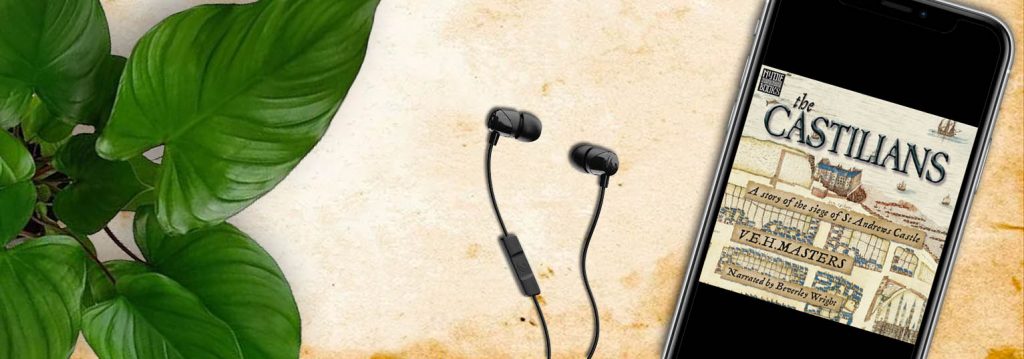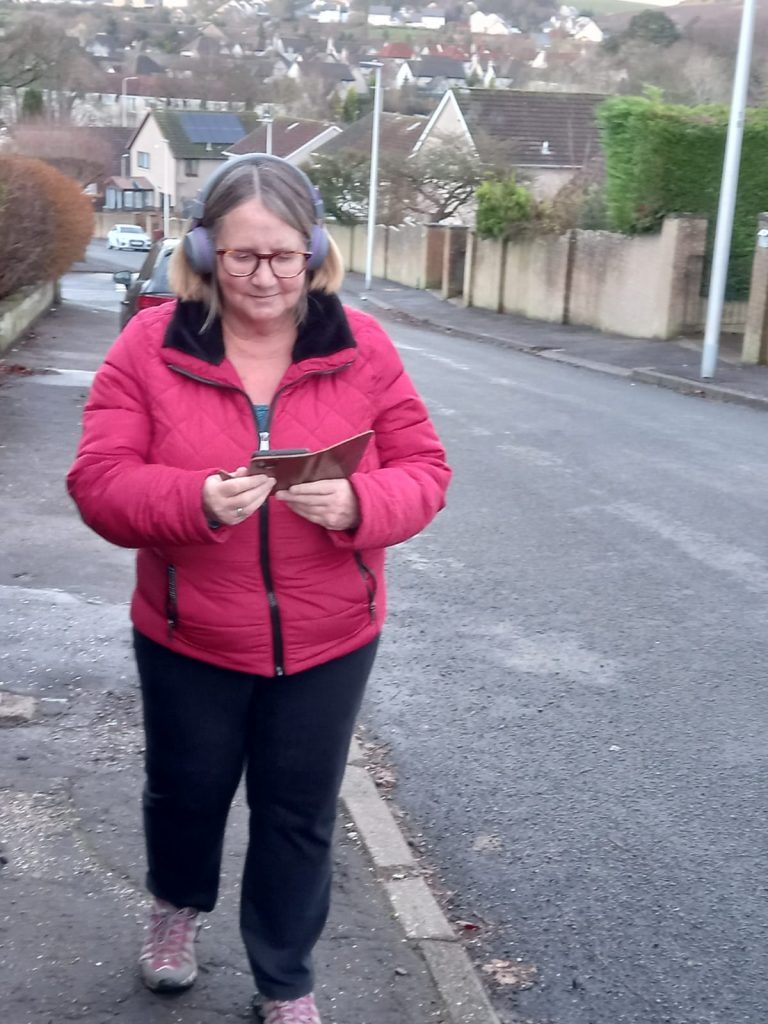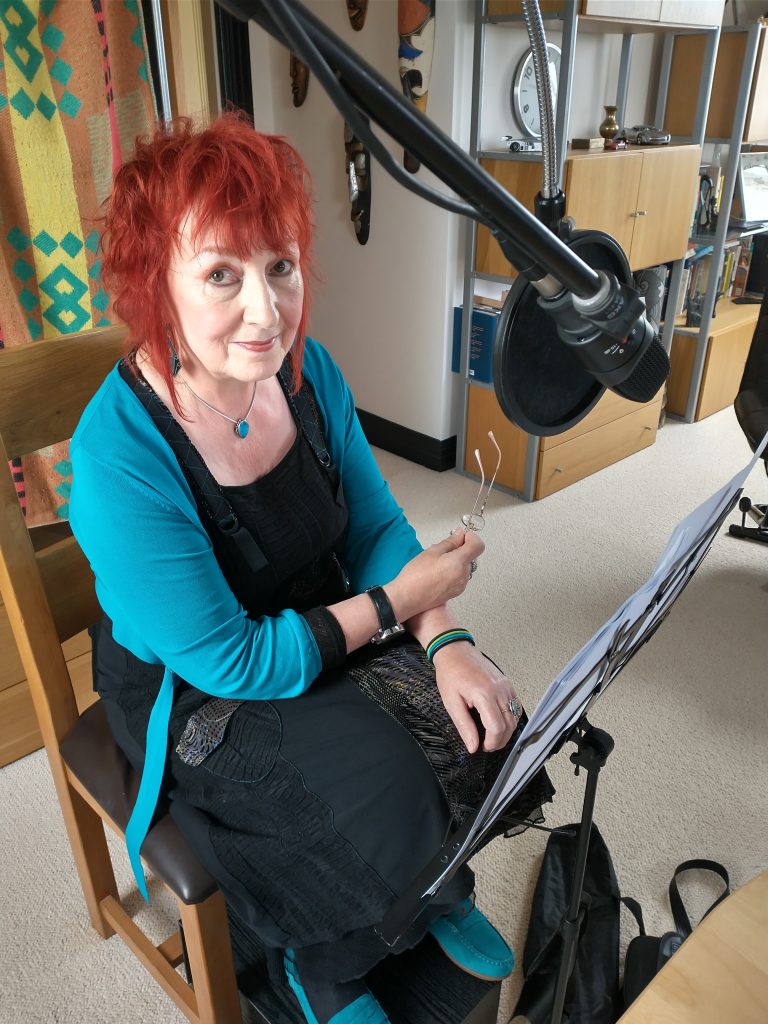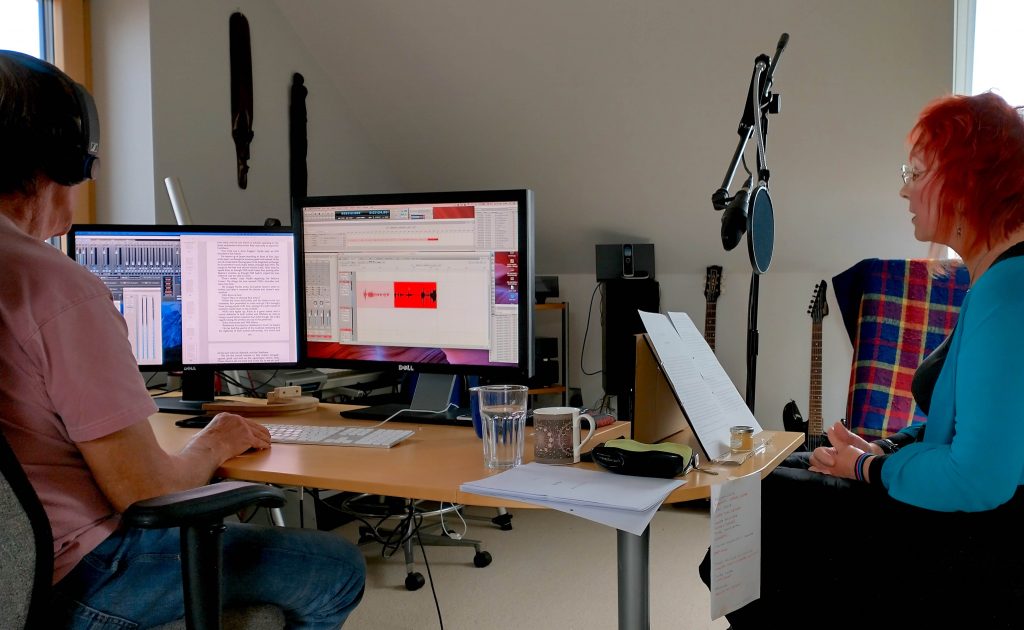
My good friend Marian is both a great hillwalker and a great lover of books – and manages to combine the two perfectly thanks to audiobooks. Indeed she’s such a big consumer of audio that she rarely reads. During lockdown when her walks were restricted to the local streets she says, ‘having an audiobook made it much less boring’.

So when I was considering making an audio version of The Castilians and narrating it myself, who better to ask for advice than Marian. I am nothing if not a demanding friend, so I sent her a, fortunately short, recording of me reading a couple of pages.
Marian phoned the next day.
‘I’m not sure it’s a good idea,’ she said. She’s nothing if not an honest friend.
‘Why not?’ I asked, trying to control the rising note of indignation in my voice. ‘I’ve listened to loads of podcasts and read lots about how you can record your own audiobook.’
‘Your voice is good, your pacing’s good, your Scottish accent is of course excellent but… it’s the dialogue. The listener needs to know which character is speaking when.’
‘Ah, I get it,’ I said, indignation fading. ‘It’s probably okay to do-it-yourself if it’s non fiction, like a self-help book.
‘Yes,’ she said, ‘that would be okay.’ I could hear the relief in her voice that she didn’t have to devote any more time to soothing ruffled feathers.
So I contacted my friend Beverley who is a fabulous singer and actor – and who was actually available since the pandemic meant that all the work she had lined up was either postponed or cancelled.

Bev, after studying the book, soon told me that there were at least 24 different characters therein who had dialogue to say – clearly some considerably more than others. We spent time discussing the motivation, age and background to the main characters for Bev considered this the lynchpin, and the biggest challenge, to getting the recording right so the story becomes real.
She says, ‘it helps when you like the book and care about what happens to the characters. I read it aloud several times and marked anything that was a problem such as a change in tone or feeling or emotions. Then I would memorise where those changes were so that it flowed’.
Bev’s advice to anyone narrating for the first time is don’t be afraid, enjoy the experience. And the most important thing is to make sure the writer is happy and be open to suggestions from them – which is something I very much appreciated about Bev’s approach.

My husband, Mike has a home recording setup already, so it was straightforward getting the studio configured for producing the audio tracks. He found lots of advice online including techniques for avoiding pops and clicks when the narrator speaks. Minimising background noise is always a challenge, so care with cabling helps reducing signal noises like mains hum. Perhaps the hardest part of the exercise was meeting the Findaway Voices and ACX specifications for sound loudness and peak levels. His advice to anyone thinking of recording their own book is to go to Findaway and ACX, read the info about preparing audio files to make sure it is something you’ll be comfortable doing – before you begin!
Here’s a short extract for you to listen to and hear the quality of Bev’s work. You can win a free copy by subscribing to my newsletter https://vehmasters.com/newsletter. You can unsubscribe at any time.
